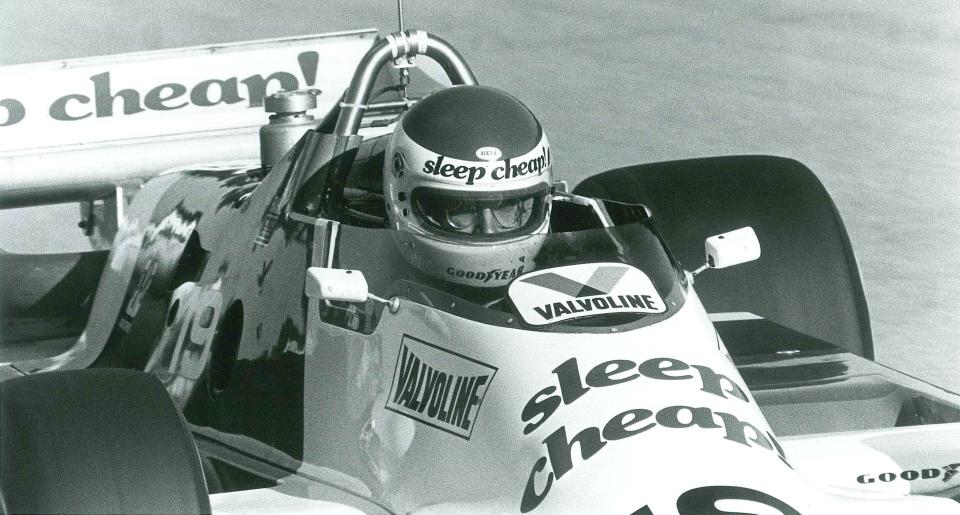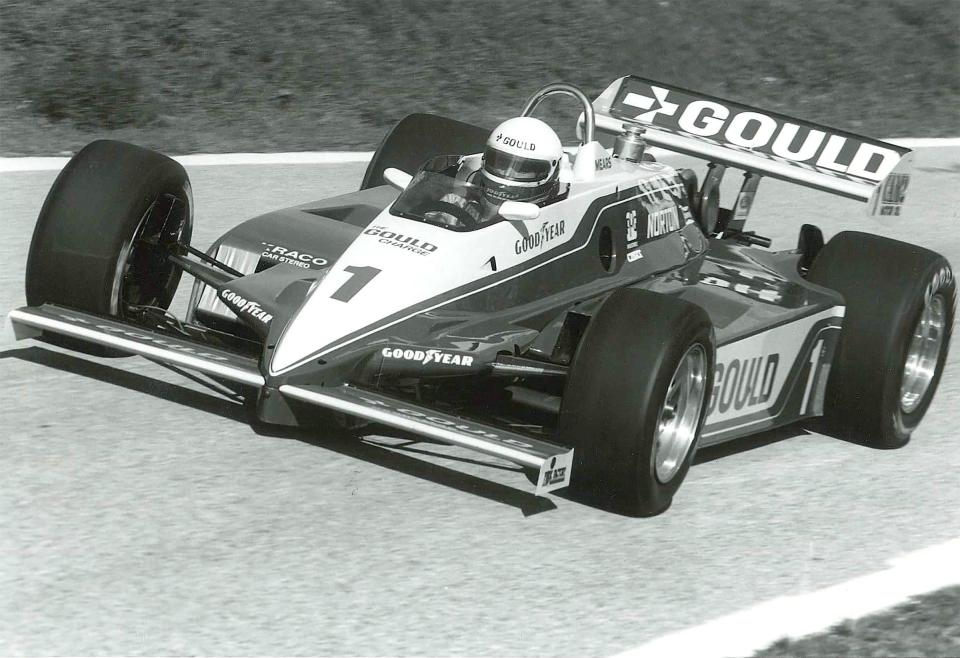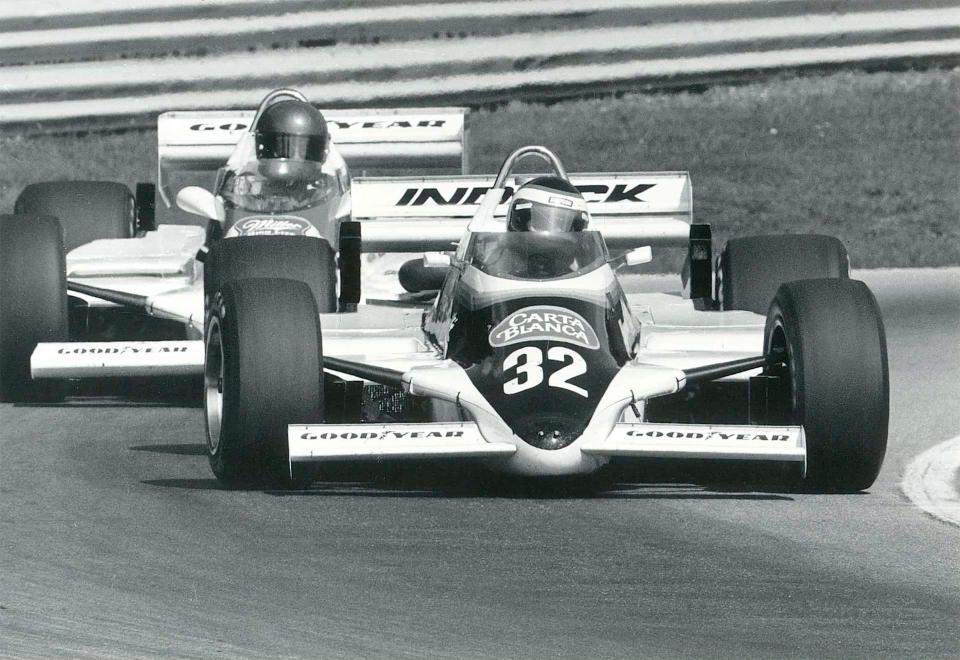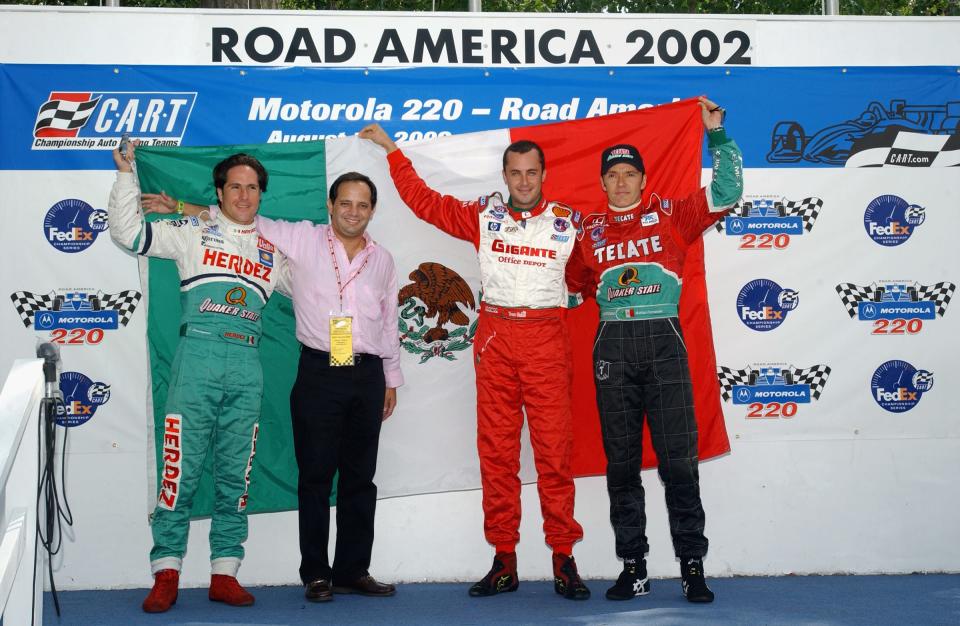Remembering the strange circumstances and unexpected winner of Road America's first Indy-car race 40 years ago

The race was run in 1982, so most details are at least a little fuzzy for everyone involved.
But the first words Bobby Rahal uses to describe the first visit of Indy cars to Road America leaves no doubt that what he does remember still frustrates him at least a little:
“The one that got away.”
Now he’s a three-time champion and an Indianapolis 500 winner as both a driver and team owner. Then he was 29 and eager to put on a good showing at the Elkhart Lake track he fell in love with as a kid.
RELATED: Road America president Mike Kertscher Q&A on NASCAR, repaving, future
RELATED: 2022 Wisconsin motor sports highlights events calendar
Forty years after CART took its breakaway series to Road America for the first time – and unheralded Hector Rebaque scored his only victory in a stunner – Indy cars are back to race around the 4-mile layout for the 33rd time. The NTT IndyCar Series Sonsio Grand Prix is set for 11:45 a.m. Sunday and Rahal is still fighting for that first win.
“I loved Elkhart, so to race an Indy car there was really special,” said Rahal, who grew up in the Chicago area and made the trek to Wisconsin numerous times with his sports car racing father, Mike.
“I had driven IMSA there, I had driven Can-Am. That’s when CART was going more and more into road courses.”
Like Rahal, some drivers had raced at Road America in other divisions – Mario Andretti, Al Unser, John Paul Jr. – but many hadn’t.
Count defending series champion and points leader Rick Mears among that second group. Although he may have tested with Penske Racing ahead of the September race weekend – probably, although he’s not certain – Mears had never competed at Road America.
“But I fell in love with the track immediately, just because it had everything,” Mears said recently. “It had elevation change, it had blind corners, it had fast corners, slow corners, long straights. I loved the Carousel and the quick, wide-open dogleg leading into the back straight, one of the straights.
“The track and the setting and the way the fans could sit around on the hills and camp out and all of that … just the whole atmosphere of the place was great. That was always one of my favorite tracks from Day 1.”
Mears also arrived with a substantial lead in the standings after a victory three weeks earlier at Riverside International Raceway, as well as confidence in a team that had helped him win championships two of the previous three years.
“The Penske team, they always gave me the right tools to do the job,” said Mears, who still works with the team as an advisor. “I always felt like sometimes in going to someplace new, I had an advantage in that respect.
“I always felt like if we could just pull them out of the trailer and race, we would have an advantage because of the team.”
Sure enough, Mears’ Penske-Cosworth was quick off the trailer, and he edged Rahal for the pole with a lap averaging 122.335 mph. Unser and Andretti shared the second row. Rebaque – a Formula One journeyman from Mexico City who was new to Indy cars – would line up ninth.
They all had much to learn.

Mears led only the first lap, but his team was more concerned with wrapping up the championship. Finish sixth or better and he’d have it with two races to spare.
Rahal and Andretti traded the lead, but Andretti’s transmission failed shortly after halfway, and then Unser took some turns in front to the delight of a crowd estimated at 40,000 in news accounts of the day. The field quickly spread out as the race proceeded without a caution.
“We were having trouble getting the fuel mileage, being the long track that it is,” Mears recalled.
“Back then you couldn’t really tune it that much from the car or from the pit. So we ended up having to stop … and change the jet in the injection to get better fuel mileage to make sure we made it to the end.”
Imagine that today.
CART limited fuel, so teams had to average 1.8 miles per gallon to complete the distance. Mears said that day he had been averaging about 1.4, and Roger Penske said if his driver had run hard he’d have come up 10 laps short. The stop on the 32nd lap took Mears’ crew about a minute and a half.

Rebaque had run within the top five for much of the day as Andretti and 16 other drivers dropped out.
Clouds built as the laps counted toward 50. The Gerry Forsythe team brought Rebaque into the pits on the 43rd lap for what would be his fourth stop.
Rahal led Unser by 48 seconds and was approaching his final stop, but rain had begun to fall. Team owner Jim Trueman noticed the chief starter eyeing his red flag and an early end seemed imminent, so Trueman gambled and kept his driver out for another lap.
Rahal made it only as far as Turn 12 before coasting to a stop. By the time he’d been towed to the pits to refuel, he was a lap behind.
“In those days nobody knew how much fuel you had in a car,” Rahal said. “You were guessing how much fuel you had.
“It was one of those races where whoever kept running won. And of course, as you know, Elkhart’s my favorite track, so to be in position to win the race and not be able to do it was disappointing.”
The rain quickly stopped. Unser held what should have been an insurmountable lead when he took the white flag, but that was also about the time his Longhorn-Cosworth began to sputter. It rolled to a stop, stranding Unser in Turn 5, where earlier he and Rebaque had had a tussle.
Rebaque could hardly believe what was happening. He had fallen out of his four previous races, and here he was, in the right place to capitalize as a victory fell into his lap. Rebaque became the first Mexican driver to win an Indy-car race.
“Although we lost some time making the last pit stop for tires, it proved to be the right thing to do,” Rebaque said in the Milwaukee Sentinel story.
“Also, the rain helped because I turned off the boost to run slower because it was slippery and we got more out of the fuel.”
Unser finished second, a lap down along with Rahal in third and Josele Garza in fourth. Mears’ long stop left him two laps back, but finishing fifth gave him the championship.

Rebaque was injured in a crash shortly thereafter at Michigan International Speedway and never raced an Indy car again. He returned to Mexico, where he followed his father’s path into architecture and business. Rebaque has largely stayed away from the Indy-car scene, although he did return to Road America for the 20th anniversary of his win.
“I knew Hector because I raced against him in Formula Atlantic in 1975, my first year,” Rahal said. “I got to know him then. … Hector was a good driver.
“But it was disappointing for sure.”
Our subscribers make this reporting possible. Please consider supporting local journalism by subscribing to the Journal Sentinel at jsonline.com/deal.
DOWNLOAD THE APP: Get the latest news, sports and more
This article originally appeared on Milwaukee Journal Sentinel: Bobby Rahal, Rick Mears recall 1982 Road America CART Indy-car race

